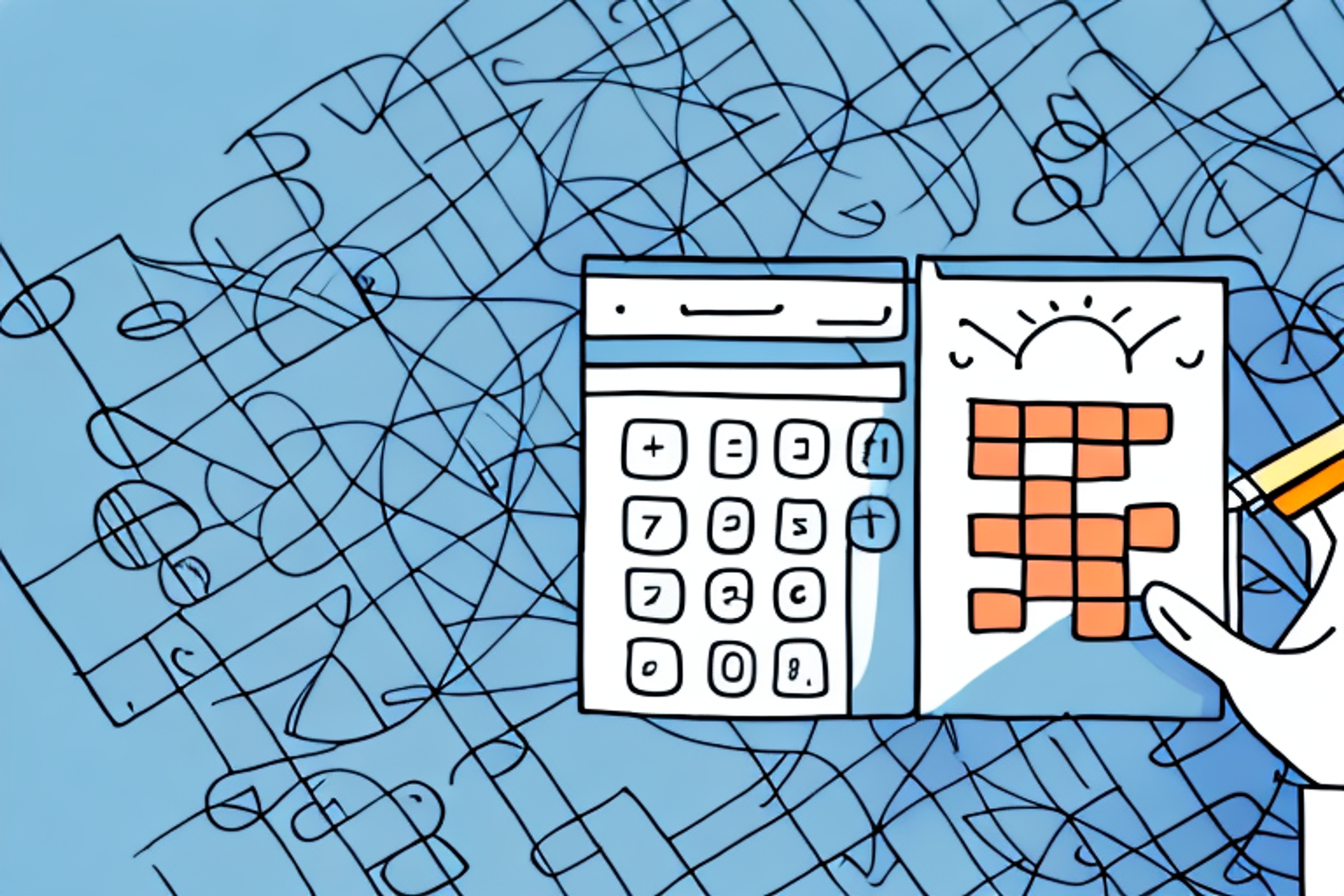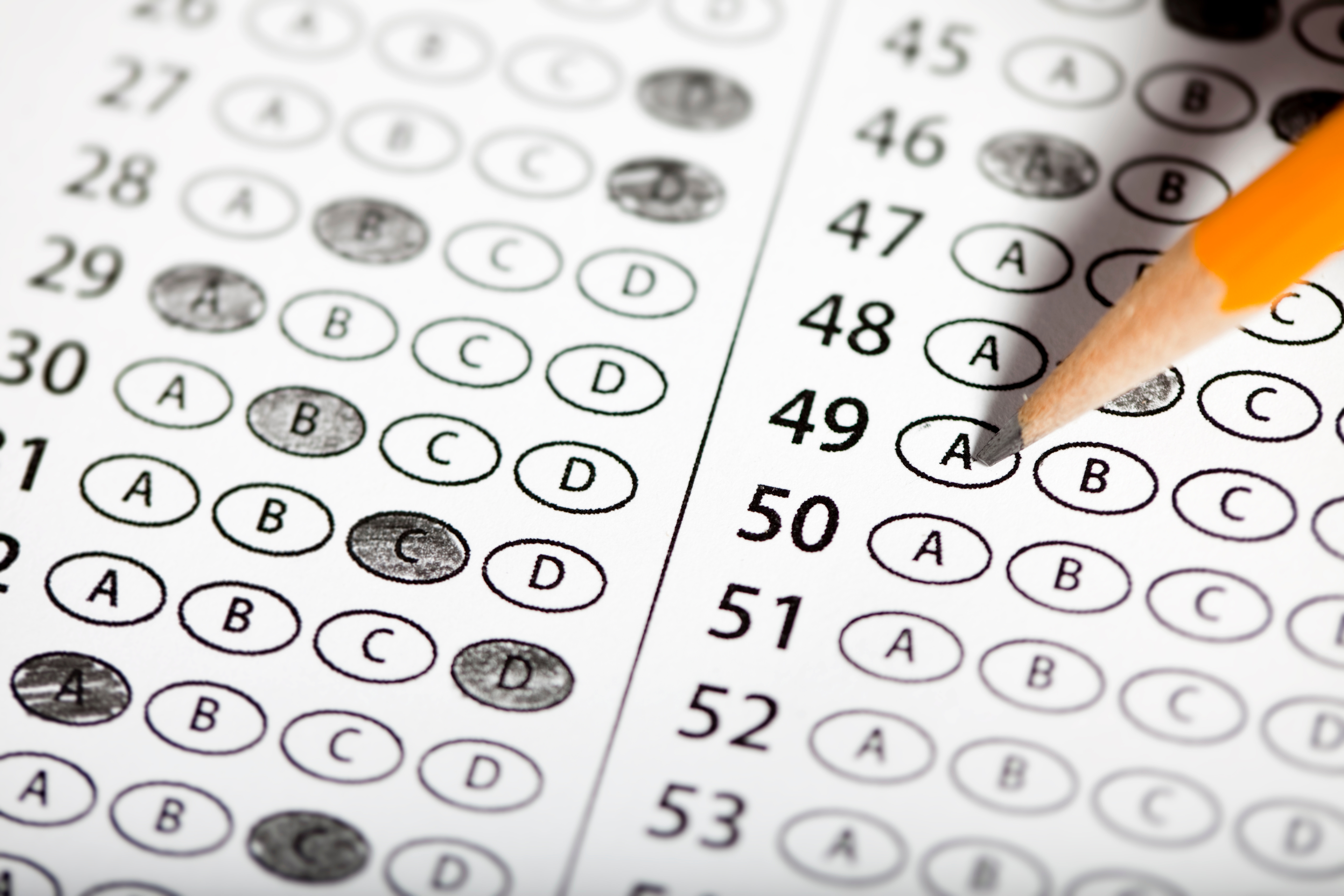
Join a free event
Learn from top coaches and industry experts in live, interactive sessions you can join for free.
Table of Contents
If you're planning on taking the Graduate Management Admission Test, or GMAT, you know that the quantitative reasoning section of the exam is a critical component of your overall score. Your ability to understand and interpret data, solve complex equations, and think analytically will determine how well you perform on this section of the test. In this article, we'll explore a wide range of strategies and resources to help you improve your quantitative reasoning skills and get a higher GMAT score.
Understanding the Importance of Quantitative Reasoning in GMAT
Before we dive into the specifics of how to improve your quantitative reasoning skills, it's essential to first understand why this section of the test is so crucial. The GMAT is designed to measure your ability to succeed in an MBA program, and strong quantitative skills are essential in almost every aspect of business. Employers expect MBA graduates to be able to analyze and interpret data, solve complex problems, and make informed decisions based on data-driven insights. By testing your quantitative reasoning abilities, the GMAT is assessing whether you have the skills needed to succeed in today's fast-paced business environments.
Furthermore, the quantitative reasoning section of the GMAT is not only important for MBA programs, but also for other graduate programs such as finance, economics, and engineering. These fields require a strong foundation in quantitative reasoning to be successful. Additionally, quantitative reasoning skills are becoming increasingly important in many industries, including healthcare, technology, and marketing. Being able to analyze data and make data-driven decisions is crucial in these fields, and the GMAT is a way for employers to assess your ability to do so.
Common Mistakes to Avoid While Preparing for GMAT Quantitative Reasoning
One of the most common mistakes that GMAT students make is assuming that they don't need to brush up on their math skills because they've already completed their undergraduate degree. It's essential to remember that many of the skills required for GMAT quantitative reasoning are not typically taught in undergraduate math courses. You may need to learn new concepts and review basic math skills like algebra, geometry, and arithmetic.
Another common mistake is not spending enough time practicing. You may have a strong understanding of the material, but if you're not comfortable answering questions within the time limits set by the exam, you'll struggle to earn a high score. Both speed and accuracy are critical when it comes to GMAT quantitative reasoning.
Develop Your Problem-Solving Skills with Quantitative Reasoning
GMAT quantitative reasoning is all about using math to solve practical problems. One of the most effective ways to improve your problem-solving skills is by practicing with real-world examples. You can find example problems in GMAT prep books, online resources, or by taking practice tests. By reviewing the solutions and examining how they were solved, you'll be able to identify patterns and strategies that you can use to solve future problems.
Additionally, working through problems with a study partner or tutor can be an effective way to learn new techniques and get feedback on your approach. You can also take advantage of GMAT study groups, which can help you stay motivated and focused throughout the study process.
Time Management Tips for GMAT Quantitative Reasoning
Time management is a critical skill that you'll need to master if you want to perform well on GMAT quantitative reasoning. The section is timed, and you'll need to make sure that you're answering questions quickly and accurately. One way to improve your time management skills is by practicing with timed math exercises. For example, set a timer for 30 minutes and attempt to solve as many practice problems as you can.
Another strategy is to become familiar with the types of questions and content areas tested on the GMAT quantitative reasoning section. By knowing the types of problems you're likely to encounter, you'll be able to move through them more quickly. Additionally, make sure to always read the directions carefully. Skipping over key instructions could cause you to lose valuable time and points.
How to Build a Strong Foundation in Math for GMAT
If you're struggling with basic math concepts, it can be challenging to jump right into GMAT quantitative reasoning. To build a strong foundation, start by reviewing key math concepts like algebra, geometry, and arithmetic. You can find resources online or take classes at a local community college or educational center. Make sure to review the basics until you feel comfortable with the material before moving onto more complex GMAT-specific concepts.
Essential Strategies to Master GMAT Quantitative Reasoning
To master GMAT quantitative reasoning, you'll need to be comfortable with a range of concepts and strategies. These include solving systems of equations, understanding data sufficiency, evaluating inequalities, and more. One effective strategy is to break down each task into smaller pieces. For example, when solving a complex equation, start by identifying the variables and isolating them using algebraic rules. Then, plug in numbers to test the solution.
Additionally, it's essential to remember that the GMAT is designed to test your ability to think critically and creatively. You'll need to approach each question with an open mind and be prepared to apply your knowledge in unique ways. By cultivating your analytical thinking skills, you'll be better equipped to tackle the challenges of GMAT quantitative reasoning.
Top Study Resources for Improving Quantitative Reasoning on GMAT
There are many study resources available to help you improve your quantitative reasoning skills for GMAT. Some of the most effective include prep books, online courses, and practice exams. When choosing study materials, look for resources that cover a range of topics and provide clear explanations and examples. Make sure to choose materials that are specific to GMAT quantitative reasoning, as other generic math resources may not cover all the relevant topics and strategies.
How to Analyze and Interpret Data for GMAT Quantitative Reasoning
The ability to analyze and interpret data is one of the most critical skills required for GMAT quantitative reasoning. To improve your skills in this area, practice solving problems that involve data analysis, including charts, graphs, and tables. Make sure to read the data carefully, looking for trends and patterns. Additionally, make sure to use context clues and common sense to inform your analysis and interpretation.
Tips and Tricks for Tackling Complex Equations in GMAT Quantitative Reasoning
Complex equations can be intimidating, but they don't have to be. With the right approach, you can tackle even the most challenging problems. One effective strategy is to break down the equation into smaller pieces and solve each part separately. Additionally, understand the properties of exponents and logarithms and how they can be used to simplify equations. Finally, always carefully check your work for mistakes, and don't be afraid to use estimation and rounding to check your answers.
Boost Your Confidence with Practice Tests for GMAT Quantitative Reasoning
One of the best ways to boost your confidence and improve your GMAT quantitative reasoning score is by taking practice tests. Practice tests can help you become more comfortable with the format and types of questions, allowing you to approach the real test with greater confidence. Additionally, practice tests can help you identify your weaknesses and areas where you need to focus your study efforts.
How to Approach Different Types of Questions in GMAT Quantitative Reasoning
The GMAT quantitative reasoning section includes a range of question types, including multiple-choice questions, data sufficiency queries, and others. To approach each question type effectively, it's essential to understand the specific requirements and strategies for each. For example, data sufficiency questions require you to determine whether a given set of data is sufficient to solve a problem, while multiple-choice questions may require you to evaluate several possible answers.
Identify Your Weaknesses and Work on Them to Improve Your Score
The only way to improve your GMAT quantitative reasoning score is by identifying your weaknesses and working to overcome them. This requires a commitment to self-reflection and honesty about your abilities. Start by taking a practice test to get a baseline score. Then, review your results and identify the areas where you struggled the most. Focus your study efforts on these areas, and consider working with a tutor or study group to get additional support.
The Role of Analytical Thinking in GMAT Quantitative Reasoning
Finally, it's essential to remember that GMAT quantitative reasoning is not just about math skills. The best GMAT students are also effective analytical thinkers. They can think critically and creatively, evaluate situations from multiple perspectives, and use data-driven insights to inform their decision-making. By cultivating your analytical thinking skills, you'll be better equipped to succeed in each section of the GMAT.
Expert Advice on Improving Your Score in GMAT Quantitative Reasoning
For additional tips and advice on improving your GMAT quantitative reasoning score, consider reaching out to experts in the field. You may be able to get advice from former exam-takers, GMAT-specific tutors, or tutors who specialize in math and science. Additionally, consider joining online forums and study groups, which can provide you with a valuable community of support as you prepare for the exam.
By applying these strategies and utilizing these resources, you can improve your quantitative reasoning skills and achieve a higher GMAT score. Remember to stay focused, stay motivated, and stay committed to your goals. With hard work and dedication, you can succeed in GMAT quantitative reasoning and beyond.
Browse hundreds of expert coaches
Leland coaches have helped thousands of people achieve their goals. A dedicated mentor can make all the difference.



















